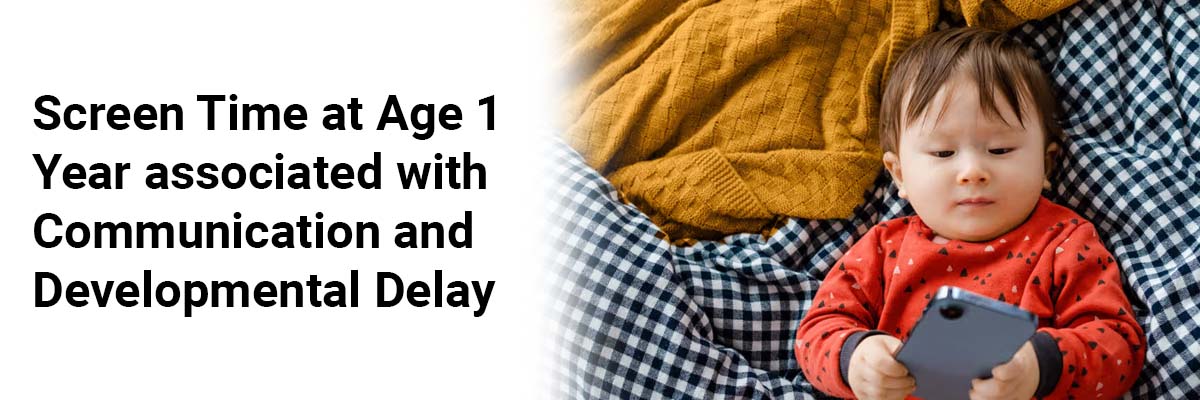
 IJCP Editorial Team
IJCP Editorial Team
Screen Time at Age 1 Year associated with Communication and Developmental Delay
A new study investigated the association between screen time
exposure in children aged one year and developmental delays across five domains
(communication, gross motor, fine motor, problem-solving, and personal and
social skills) at ages 2 and 4 years.
This study was carried out under the Tohoku Medical Megabank
Project Birth and Three-Generation Cohort Study in Japan and included 7097
mother-child pairs recruited between 2013 and 2017.
Here, children belonging to the screen time exposure categories
(<1, 1 to <2, 2 to <4, or ≥4 hours per day) were assessed, and
developmental delays were evaluated using the Japanese version of the Ages
& Stages Questionnaires, Third Edition.
The results revealed that children with greater screen time at age
one year had a higher risk of developmental delays in communication and
problem-solving at ages 2 and 4 years. The associations were dose-dependent,
with longer screen time associated with increased odds of developmental delays
in these domains.
Therefore, prolonged screen time during infancy (age one year) is linked to delays in communication and problem-solving skills in early childhood. The study emphasized the importance of considering specific domains of developmental delay separately in discussions about screen time and child development.
Source: Takahashi I, Obara T, Ishikuro M, Murakami K,
Ueno F, Noda A, Onuma T, Shinoda G, Nishimura T, Tsuchiya KJ, Kuriyama S. JAMA Pediatrics.
2023 Oct 1;177(10):1039-46.

IJCP Editorial Team
Comprising seasoned professionals and experts from the medical field, the IJCP editorial team is dedicated to delivering timely and accurate content and thriving to provide attention-grabbing information for the readers. What sets them apart are their diverse expertise, spanning academia, research, and clinical practice, and their dedication to upholding the highest standards of quality and integrity. With a wealth of experience and a commitment to excellence, the IJCP editorial team strives to provide valuable perspectives, the latest trends, and in-depth analyses across various medical domains, all in a way that keeps you interested and engaged.





















Please login to comment on this article